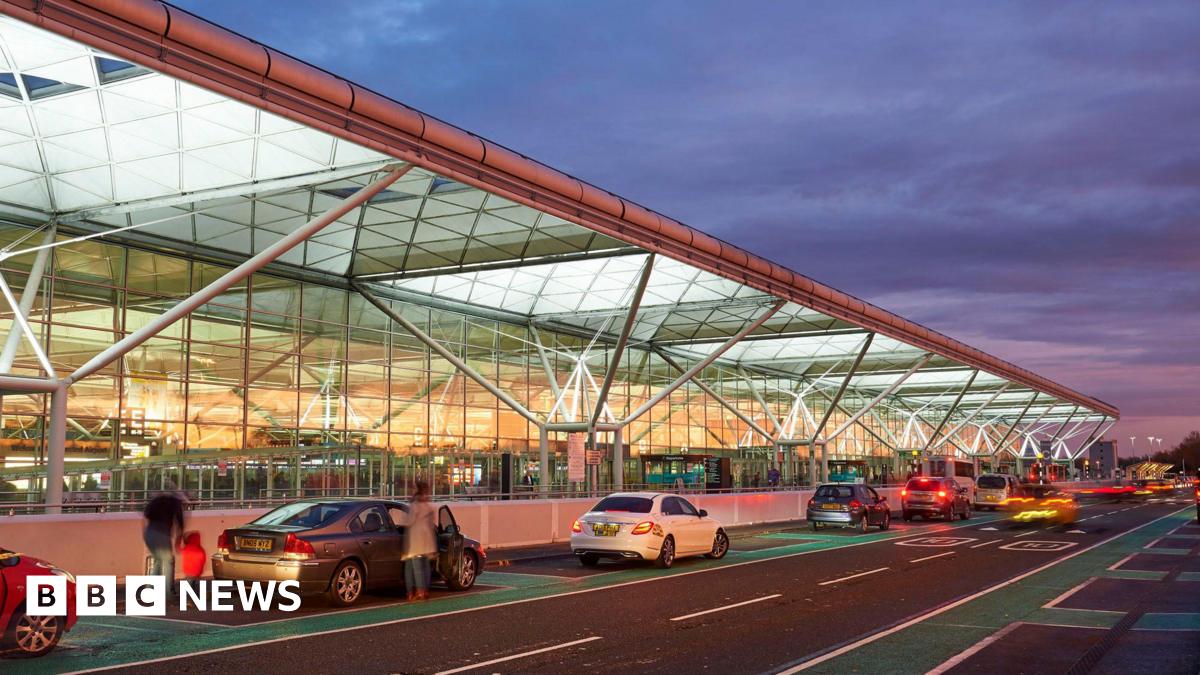Travel
Storm Darragh Disrupts West Midlands Rail Services: New Essential Travel Only as Chiltern Railways Reduces Trains Between Birmingham and London – Travel And Tour World

Saturday, December 7, 2024
Storm Darragh brought significant disruptions to rail travel across the West Midlands, forcing passengers to reconsider their plans amid warnings to travel only if absolutely necessary. The Met Office issued a Yellow weather alert for wind on Saturday, December 7, cautioning about strong winds and rain in the region. In response, Chiltern Railways implemented a reduced timetable, operating just one train per hour on its key routes between Birmingham Moor Street, Snow Hill, and London Marylebone. This decision was made to prioritize safety, as the storm posed significant risks to railway infrastructure.
Tony Baxter, operations director at Chiltern Railways, addressed the situation, urging passengers to travel only if essential. He explained that high winds can create dangerous conditions, such as trees or debris falling onto the tracks. To accommodate those affected, the operator announced flexible ticketing options, allowing tickets for Saturday to be used on Sunday, December 8, as well as Monday, December 9, and Tuesday, December 10, assuming conditions improved by then. This effort aimed to provide relief for passengers needing to delay their plans due to the storm.
The storm’s impact extended beyond the railway system, affecting the broader travel network across the West Midlands. Many residents awoke to hazardous conditions, including fallen branches and localized flooding. These factors disrupted not only train services but also road and air travel, causing widespread inconvenience. For weekend travelers, holiday shoppers, and essential workers, the hourly train service resulted in long waits and slower journeys, forcing some to cancel their plans altogether.
The challenges faced by Chiltern Railways and its passengers underscore the vulnerabilities of transportation systems to extreme weather events. Severe weather places immense pressure on operators to balance safety and service availability. For Chiltern Railways, reducing train frequency and offering flexible ticketing were crucial steps in managing the crisis while addressing passenger concerns. However, such disruptions often lead to frustration, highlighting the difficulty of maintaining customer satisfaction during unavoidable crises.
The travel industry, particularly in regions prone to severe weather, faces recurring challenges in adapting to such events. Frequent disruptions can damage customer trust and loyalty, especially when alternative travel options are limited. Moreover, the economic consequences of reduced services are far-reaching, affecting not only rail operators but also businesses dependent on consistent travel, such as retail and tourism. These disruptions also place significant stress on railway infrastructure, with high winds and flooding exposing vulnerabilities in tracks, stations, and equipment.
While the impact of Storm Darragh was localized, its implications resonate globally. With climate change intensifying the frequency and severity of extreme weather events, transportation networks worldwide are increasingly at risk. For travelers, this means greater uncertainty when planning trips, as weather-related disruptions become more common. Many may choose to delay or cancel non-essential journeys during such periods, reducing travel volumes and creating ripple effects throughout the industry.
Flexibility in ticketing and clear communication, as demonstrated by Chiltern Railways, are becoming critical features for transportation providers. These policies offer travelers the reassurance they need during periods of uncertainty. At the same time, there is a growing emphasis on infrastructure resilience, as operators must adapt to changing environmental conditions to minimize disruptions and maintain reliable services.
The response to Storm Darragh serves as an example of how transportation systems can navigate the challenges posed by severe weather. For passengers, staying informed and flexible is key to managing travel disruptions. For the industry, investing in better communication, infrastructure, and contingency plans is essential to address the increasing impact of extreme weather on global travel. With climate change expected to exacerbate these challenges, both travelers and operators must prepare for a future where adaptability is the cornerstone of travel planning.











